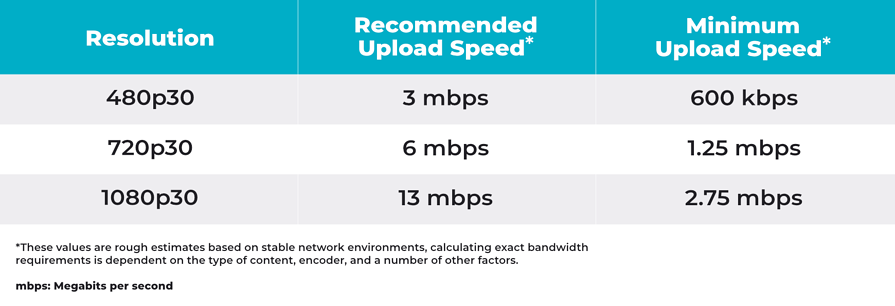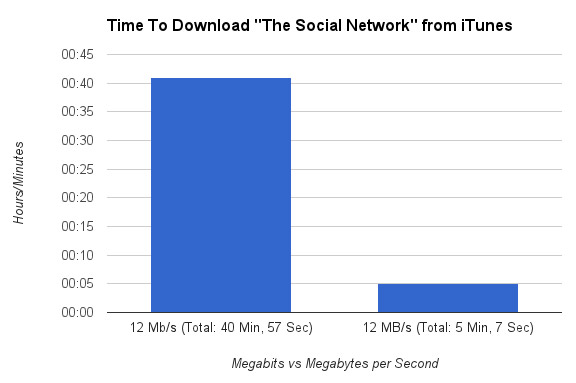Exactly how to Choose the Right Internet Plan Based Upon Megabits Per Second
Exactly how to Choose the Right Internet Plan Based Upon Megabits Per Second
Blog Article
Demystifying Megabits Per Second: An Overview to Picking the Right Internet Plan
Understanding the concept of megabits per second (Mbps) is vital when choosing a web plan that lines up with your certain demands. As the step of information transmission rate, Mbps plays a substantial role in figuring out exactly how effectively your household can take part in numerous online tasks, from streaming high-def web content to fundamental browsing. With the wide range of plans offered, just how do you determine which one is ideal for you? The response hinges on a careful evaluation of your usage patterns and assumptions, exposing understandings that may not be quickly evident.
Recognizing Megabits Per Second

To comprehend the significance of Mbps, it is very important to identify that it reflects the optimum bandwidth offered for data transfer. As an example, a plan offering 100 Mbps enables the synchronised transmission of data at that price, though real rates might differ because of network blockage, distance from the provider, and the efficiency of your home network equipment.
Additionally, understanding the distinction between megabytes and megabits is critical. While megabits signify the speed of data transfer, megabytes (1 byte = 8 bits) determine the size of data. For instance, downloading a 100 megabytes file on a 100 Mbps link theoretically takes regarding 8 seconds, disallowing any type of disruptions.
Eventually, choosing a proper Mbps rating based on your home's internet usage is vital for making sure an acceptable online experience.
How Internet Speed Impacts Tasks
Internet rate plays a vital function in figuring out exactly how efficiently individuals can engage in different on the internet tasks. Standard tasks like searching web sites or inspecting e-mails usually need reduced speeds, commonly around 1-5 Mbps. Megabits Per Second.
Online pc gaming, one more popular activity, also relies heavily on internet speed. A steady connection of at the very least 15-25 Mbps can provide an affordable side and minimize latency, which is crucial for real-time communications. Video conferencing applications, significantly crucial for remote job, benefit from speeds of at least 3-8 Mbps for clear audio and video clip quality.
In homes with multiple customers, synchronised tasks can stress transmission capacity. In such instances, greater speeds-- 50 Mbps or more-- are advisable to suit varied needs without a decrease in performance. Thus, comprehending the relationship in between internet speed and particular online tasks is crucial for picking a proper plan that fulfills private or household needs efficiently.
Various Kinds Of Internet Plans
Choosing an appropriate internet plan needs an understanding of the various alternatives offered in the marketplace. Internet solution providers (ISPs) normally use several sorts of strategies, each dealing with various user demands and preferences.
Broadband plans are one of the most common, providing high-speed internet using cord or DSL connections. These plans are suitable for houses that take part in multiple online activities simultaneously, such as video clip, gaming, and streaming conferencing - Megabits Per official source Second. Fiber-optic plans, while less commonly available, offer the fastest speeds and the most effective efficiency, making them optimal for tech-savvy users or those with extensive bandwidth demands
Fixed cordless and satellite plans serve locations where typical wired connections are not available or unreliable. While they can be beneficial for country users, they commonly include higher latency and reduced speeds contrasted to broadband options.
Mobile hotspot plans enable users to access the internet via cellular networks, providing versatility for those that require internet on the move. Some ISPs provide tiered plans with varying data and rates caps, allowing customers to select a plan that straightens with their usage patterns and spending plan. Recognizing these various kinds of internet plans is crucial in making an educated choice.
Determining Your Speed Demands
Frequently assessing your speed needs is crucial for selecting an internet plan that suits your way of living. Recognizing the requirements of your family or company can assist in choosing an ideal package.
Next, think about the activities you take part in online. Standard tasks such as surfing and emailing usually call for reduced rates, around 1-5 Mbps. Streaming videos in high interpretation, on the internet gaming, or huge data downloads might demand speeds upwards of 25 Mbps or more.
Additionally, take right into account the variety of customers. Megabits Per Second. A house with several people streaming content or pc gaming at the very same time will call for substantially extra transmission capacity than a single-user situation
Last but not least, bear in mind that internet rates can be affected by elements such as network blockage and the high quality of your router. By thoroughly examining your rate requires, you can make an educated choice, official source making certain that your internet plan aligns with your daily usage and future demands.
Tips for Selecting the Right Plan
Choosing the right internet plan needs mindful factor to consider of a number of vital variables to ensure it satisfies your needs. Initially, examine your usage patterns-- whether you are streaming, gaming, or working from home-- considering that these tasks require various bandwidth levels. Typically, homes with high-bandwidth tasks or multiple customers will take advantage of higher-speed plans.
Next, examine the information caps related to different plans. find out this here Some suppliers enforce limitations on information usage, which might lead to added fees or throttled speeds upon surpassing those limits. Choosing an unrestricted information plan may be useful for heavy users.
Furthermore, take into consideration the integrity of the provider. Research customer testimonials and ask about the company's uptime and client service efficiency. If it does not have dependability or assistance., a more affordable plan might not be an excellent offer.
Lastly, review promotional deals and agreement terms. While initial costs can be attractive, know the lasting costs and whether the plan requires a lengthy contract. By evaluating these aspects, you can make an educated decision that straightens with your internet needs and budget plan, ensuring you choose one of the most suitable prepare for your home.

Verdict
In conclusion, understanding megabits per second (Mbps) is essential for choosing an appropriate internet plan. Eventually, choosing a plan with sufficient bandwidth guarantees contentment and effectiveness in navigating the electronic landscape.
Understanding the concept of megabits per second (Mbps) is critical when selecting an internet plan that aligns with your certain demands. Hence, understanding the relationship between internet rate and certain online tasks is crucial for choosing a proper plan that fulfills private or family demands effectively.
Mobile hotspot plans enable individuals to access the internet through cellular networks, supplying flexibility for those that need internet on the go. Some ISPs supply tiered strategies with differing information and rates caps, allowing clients to select a strategy that lines up with their usage patterns and spending plan.Often assessing your speed requires is crucial for picking an internet plan that matches your way of life.
Report this page